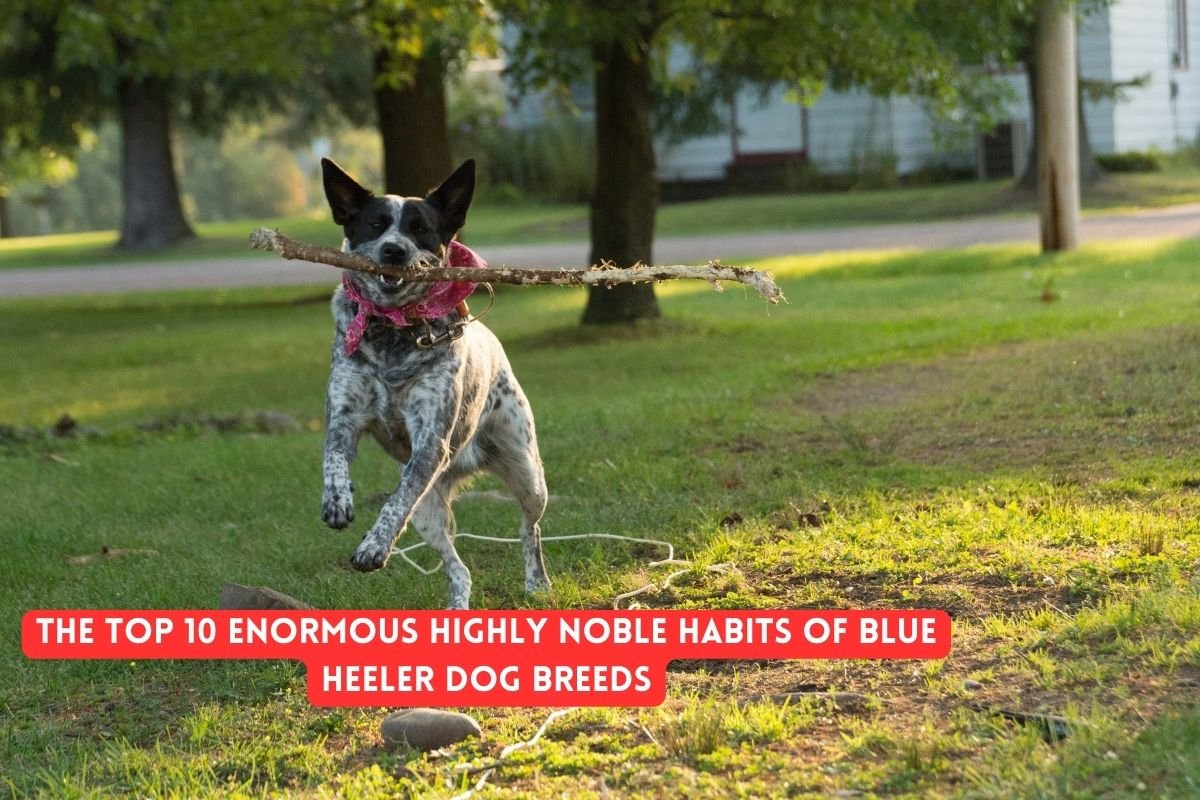Blue Heelers, also known as Australian Cattle Dogs, are renowned for their extraordinary traits and noble habits. These intelligent, hardworking, and loyal dogs exhibit a variety of impressive behaviors that make them stand out among dog breeds. Here are the top 10 enormous highly noble habits of Blue Heeler dog breeds. Known for their sharp minds, Blue Heelers excel in obedience training and problem-solving tasks. Their intelligence makes them quick learners and adept at various commands and tricks.
Intense Loyalty
Blue Heelers are fiercely loyal to their owners. This breed forms strong bonds and will go to great lengths to protect and please their family. Known for their sharp minds, Blue Heelers excel in obedience training and problem-solving tasks. Their intelligence makes them quick learners and adept at various commands and tricks.
High Intelligence
Known for their sharp minds, Blue Heelers excel in obedience training and problem-solving tasks. Their intelligence makes them quick learners and adept at various commands and tricks.
Strong Work Ethic
Bred for herding cattle, Blue Heelers possess an incredible work ethic. They thrive in environments where they have tasks to perform, whether it’s herding, agility training, or search and rescue operations.
Unwavering Courage
These dogs are fearless and will face any challenge head-on. Their bravery is particularly notable in protective situations, where they will stand up to threats without hesitation.
Remarkable Endurance
Blue Heelers have high stamina and can work for long hours without tiring. This endurance makes them excellent companions for active individuals and families who enjoy outdoor activities.
Protective Instincts
This breed has a strong protective nature, making them excellent watchdogs. They are always alert and will notify their owners of any unusual activity or intruders.
Affectionate Companionship
Despite their tough exterior, Blue Heelers are affectionate and loving towards their family members. They enjoy spending quality time with their owners and are known to be very gentle with children.
Adaptability
Blue Heelers can adapt to various environments and living conditions. Whether living on a farm or in a city apartment, they adjust well as long as they receive sufficient exercise and mental stimulation.
Problem-Solving Skills
Their intelligence and curiosity drive them to solve problems efficiently. This trait is particularly useful in training sessions and real-life scenarios where quick thinking is required.
High Energy Levels
Blue Heelers are energetic and require plenty of physical activity. Their high energy levels make them excellent partners for sports like hiking, running, and agility courses.
Conclusion
Blue Heelers are an extraordinary breed with a combination of intelligence, loyalty, and a strong work ethic. These noble traits make them not only exceptional working dogs but also loving and protective companions. Their adaptability and problem-solving skills further enhance their appeal, making them a popular choice among dog enthusiasts. If you’re looking for a loyal, hardworking, and affectionate dog, the Blue Heeler might just be the perfect breed for you.
FAQs
Are Blue Heelers good family pets?
Yes, Blue Heelers are good family pets. They are loyal, protective, and great with children, although they require proper training and socialization.
How much exercise do Blue Heelers need?
Blue Heelers need a lot of exercise, ideally at least 1-2 hours of vigorous activity daily to keep them happy and healthy.
Are Blue Heelers easy to train?
Yes, Blue Heelers are highly intelligent and quick learners, making them relatively easy to train with consistency and positive reinforcement.
Do Blue Heelers get along with other pets?
With proper socialization, Blue Heelers can get along with other pets, though their herding instincts may initially cause them to try to herd other animals.
What is the lifespan of a Blue Heeler?
Blue Heelers have a lifespan of 12-16 years, provided they are given proper care, nutrition, and regular veterinary check-ups.
